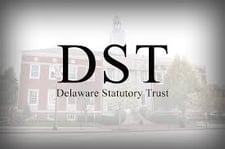New York, NY, November 17, 2016 (Newswire.com) - Fortitude Investment Group, LLC. was founded by Daniel P Raupp, Jeffrey A. Kiesnoski and Jon Paul Cirelli. Our firm is a fully independent alternative investment firm focused on educating our clientele in tax-advantaged and tax-efficient, asset-backed investment vehicles.
Our philosophy for accredited investors looking for 100% passive, institutional-quality replacement properties is based on preservation of capital and predictable tax-efficient income investment vehicles.
Our 1031 Exchange Clients Are Often in One of Two Categories
-
The first category is an investor that owned an investment property for a very long time, either through an inherited asset or it was purchased many years ago and increased in value substantially representing a majority
 of the investor's net worth. It is imperative that as client needs change, these clients invest in suitable products. In addition, they should be appropriately educated on both the risks and potential benefits when in investing in tax-deferral options, such as 100% passive Delaware Statutory Trust (DST) properties offered by Fortitude Investment Group, LLC, (www.1031dst.com). Through our guidance, clients can be assured of a full disclosure and a transparent experience in which our principals and staff sit on the same side of the table as the client doing our best to help protect their life savings and financial wherewithal. We use our knowledgeable staff and expert referring relationships to offer our clients the most robust team of real estate professionals in the industry.
of the investor's net worth. It is imperative that as client needs change, these clients invest in suitable products. In addition, they should be appropriately educated on both the risks and potential benefits when in investing in tax-deferral options, such as 100% passive Delaware Statutory Trust (DST) properties offered by Fortitude Investment Group, LLC, (www.1031dst.com). Through our guidance, clients can be assured of a full disclosure and a transparent experience in which our principals and staff sit on the same side of the table as the client doing our best to help protect their life savings and financial wherewithal. We use our knowledgeable staff and expert referring relationships to offer our clients the most robust team of real estate professionals in the industry. -
The second category is for extremely high net worth investors that understand that the DST offers them the ability to divest from their existing real estate portfolios and exchange into diversified portfolios of institutional quality real estate offerings packaged in the Delaware Statutory Trust structure from various national sponsors that can be found at www.1031DST.com . These clients are also aware that the current environment may offer an extremely slim selection of quality properties for their 1031 exchange needs. Clients are not interested in selling an asset that they have owned for years and have come to understand the headaches they may need to deal with on managing their existing asset, only to buy someone else’s headache, at a similar cap rate. This is just one example why our clients find Delaware Statutory Trusts attractive.
Delaware Statutory Trusts Are also Often Used by Investors to Fill the Balance of Equity and/or Debt that Their Replacement Property, in Which They Were Directly Invested, Has Been Unable to Satisfy
- Example 1: Our client sells a single family (three unit) investment property for 6 million dollars. They identify a property that they intend to use as one replacement option in their exchange. This property will be bought for 4 million dollars, leaving the client with 2 million dollars of what is known as Boot (1031 boot can arise in several forms, but the following are the most common: Cash boot, Mortgage (or debt) boot, Personal property boot.) If the client cannot find a replacement property for the 2 million dollars, he will owe taxes on that portion of capital gain. However, because the client was aware that the Delaware Statutory Trust option existed and accessed the menu through www.1031DST.com he was able to place his “boot” and defer the tax liability by investing into a quality DST portfolio with Fortitude Investments Group's help.
- Example 2: This client is in a very similar situation to client 1, however, client two sells a CVS Pharmacy store for 6 million dollars at which time he pays off his 2-million-dollar mortgage. This client buys a multi-family he finds and wants to directly manage for 2 million dollars. This client still must replace an additional 2 million dollars of equity, as well the client must replace the 2 million of debt he had on the relinquished property. That being said, the client accessed the menu at www.1031dst.com and found a pre-qualified menu of Delaware Statutory Trust options that would fit perfectly to cover the 2 million dollars of equity and the 2 million dollars of debt for his exchange needs. It is imperative to understand that both the equity and the debt from the relinquished property must be replaced to 100% defer the capital gains tax.
Potential Advantages of the Delaware Statutory Trust (DST) Structure
Some of the many advantages of the DST may include:
- Limited Liability: The DST structure shields investors from personal liabilities beyond the amount of their investment, similar to an LLC or corporation.
-
Non-recourse debt: The investors are not underwritten for the debt on the property owned by the Delaware Statutory Trust. The debt does not show on the individual investor's credit report. The tax benefits of the debt are passed through to the individual investors.
-
Bankruptcy Remote: The DST structure provides protection against creditors pursuing individual investors for the DST’s debts. It also prohibits an individual investor from placing liens on the property of a DST, giving protections to mortgage lenders and other beneficiaries.
-
Control: Major decisions of a DST are made by a single Trustee, eliminating concerns or disagreements between investors.
-
Single Borrower. The DST owns 100% of the property and serves as the sole borrower, which makes the process of obtaining a mortgage much simpler.
-
Pre-Packaged Investments. Typically, the properties of a DST have been acquired and the mortgage put in place, before they are offered to investors. This makes it relatively simple for investors to use the 1031 exchange funds to purchase one or more fractional, DST investments.
Limitations of the Delaware Statutory Trust (DST) Structure
Despite its many advantages, the Delaware Statutory Trust structure does have its limitations. In order to qualify for 1031 exchange purposes, DSTs are subject to certain prohibitions. They include, but are not limited to:
1. Once the DST is closed, investors are not allowed to make additional capital contributions;
2. The Trustee cannot renegotiate terms of existing loans nor borrow any new funds;
3. When a property that is owned by a DST is sold, the Trustee must return the proceeds to the investors and cannot invest them in another property; that choice is left up to the individual investors whether to execute another exchange or not.
4. Capital expenditures the DST can make on the properties it owns are limited to: (a) normal repair and maintenance, (b) non-structural improvements, and (c) those required by law;
5. Cash held by the DST between distributions to the investors may only be invested in short-term debt securities, like US Treasury bills;
6. All cash, other than reserves, must be regularly distributed to the Beneficiaries; and
7. The Trustee cannot enter into new leases or renegotiate current leases.
The real estate and Delaware Statutory Trust sponsor company, which also serves as the master tenant under a master lease agreement, acquires the property under the Delaware Statutory Trust (DST) umbrella and opens up the trust for potential investors to purchase a beneficial interest in said trust.
 The investors may either invest their 1031 exchange proceeds sitting with their qualified intermediaries into the DST, or the investor may purchase an interest in the Delaware Statutory Trust (DST) directly with cash or Non-1031 monies.
The investors may either invest their 1031 exchange proceeds sitting with their qualified intermediaries into the DST, or the investor may purchase an interest in the Delaware Statutory Trust (DST) directly with cash or Non-1031 monies.
DST investors may benefit from institutional quality real estate managed by some of the largest real estate firms in the country. Examples of underlying properties are: a portfolio of four 250-unit apartment buildings in multiple states; a portfolio of shopping centers; a medical office property; large retail, single-tenant, stand-alone. triple net leased properties; to investment-grade tenants, as well as storage facilities. The endless potential allows for a unique diversification unmatched by direct invest into real estate.
Most DST investments are assets that your typical accredited investor could not otherwise afford. However, by pooling money with other investors, they can acquire diversified portfolios of this type of asset in many different sectors of real estate as well as geographical locations.
As with all investments, there are pros and cons and risks to any investment and one should consult with their real estate attorney, CPA and registered representative to see if a 1031 exchange using a DST is the appropriate avenue to explore.
The acquisition or sale of a Delaware Statutory Trust (DST) for the purpose of a tax-deferred 1031 exchange qualifies for treatment under section 1031 of the Internal Revenue Code ("1031 Exchange"). Investors will be able to sell the existing investment property or beneficial interest in a DST and complete a 1031 exchange into another "like-kind" investment property or beneficial interest in a new DST.
There are risks associated with investing in a Delaware Statutory Trust (DST) and real estate investment properties including, but not limited to, loss of entire principal, declining market value, tenant vacancies and illiquidity. DST 1031 properties are only available to accredited investors (generally described as having a net worth of over 1 million dollars exclusive of primary residence or $200,000 income individually/$300,000 jointly of the last three years) and accredited entities only.
The information herein has been prepared for educational purposes only, does not constitute an offer to purchase or sell securitized real estate investments, and is not meant to be interpreted as tax or legal advice. Because investors situations and objectives vary this information is not intended to indicate suitability for any particular investor. Please speak with your legal and tax advisors for guidance regarding your particular situation.
Securities offered through Concorde Investment Services, LLC (CIS), member FINRA/SIPC. Advisory services offered through Concorde Asset Management, LLC, an SEC registered investment adviser. Insurance offered through Concorde Insurance Agency, Inc. Fortitude Investment Group is independent of CIS, CAM and CIA.





Let Us Know What You Thought about this Post.
Put your Comment Below.